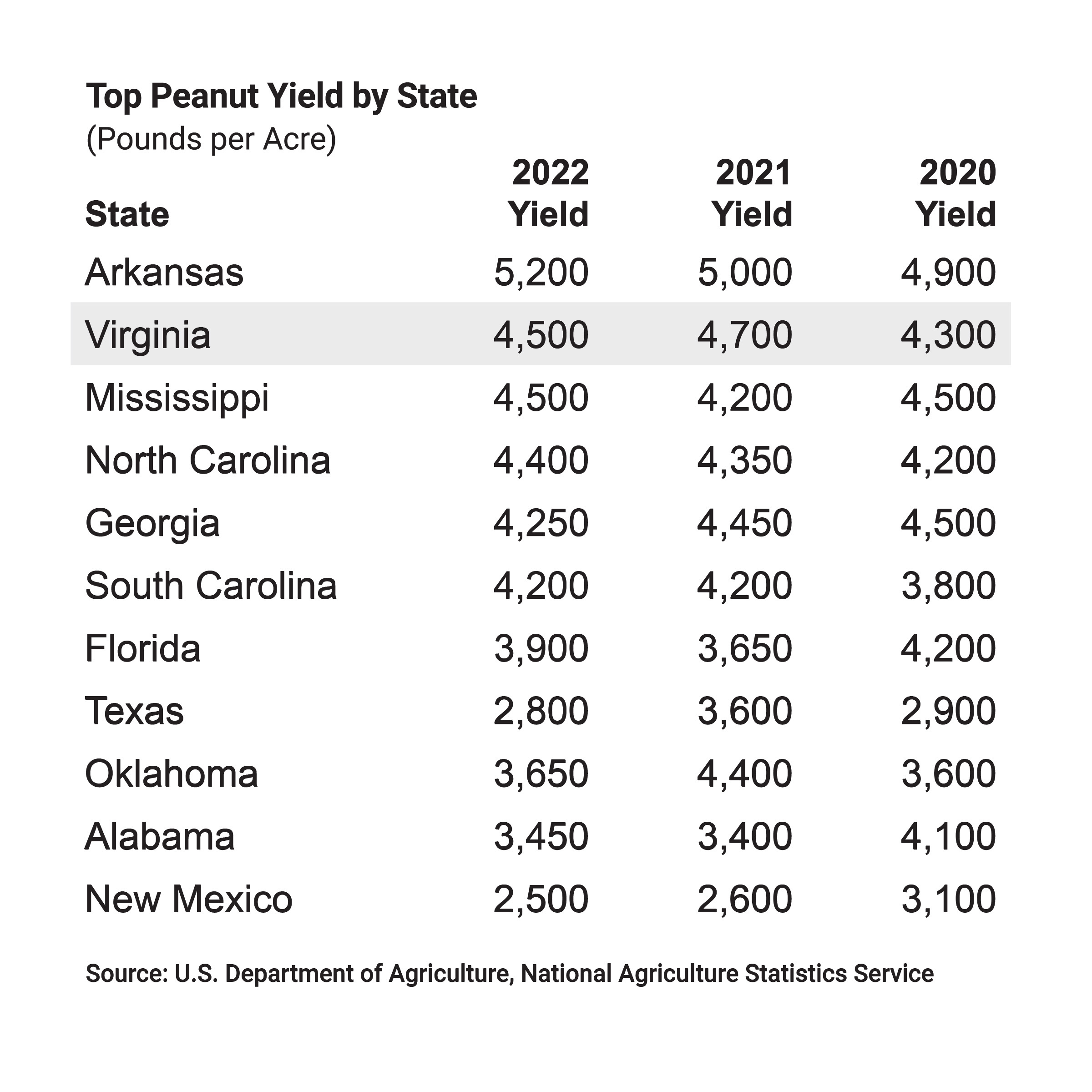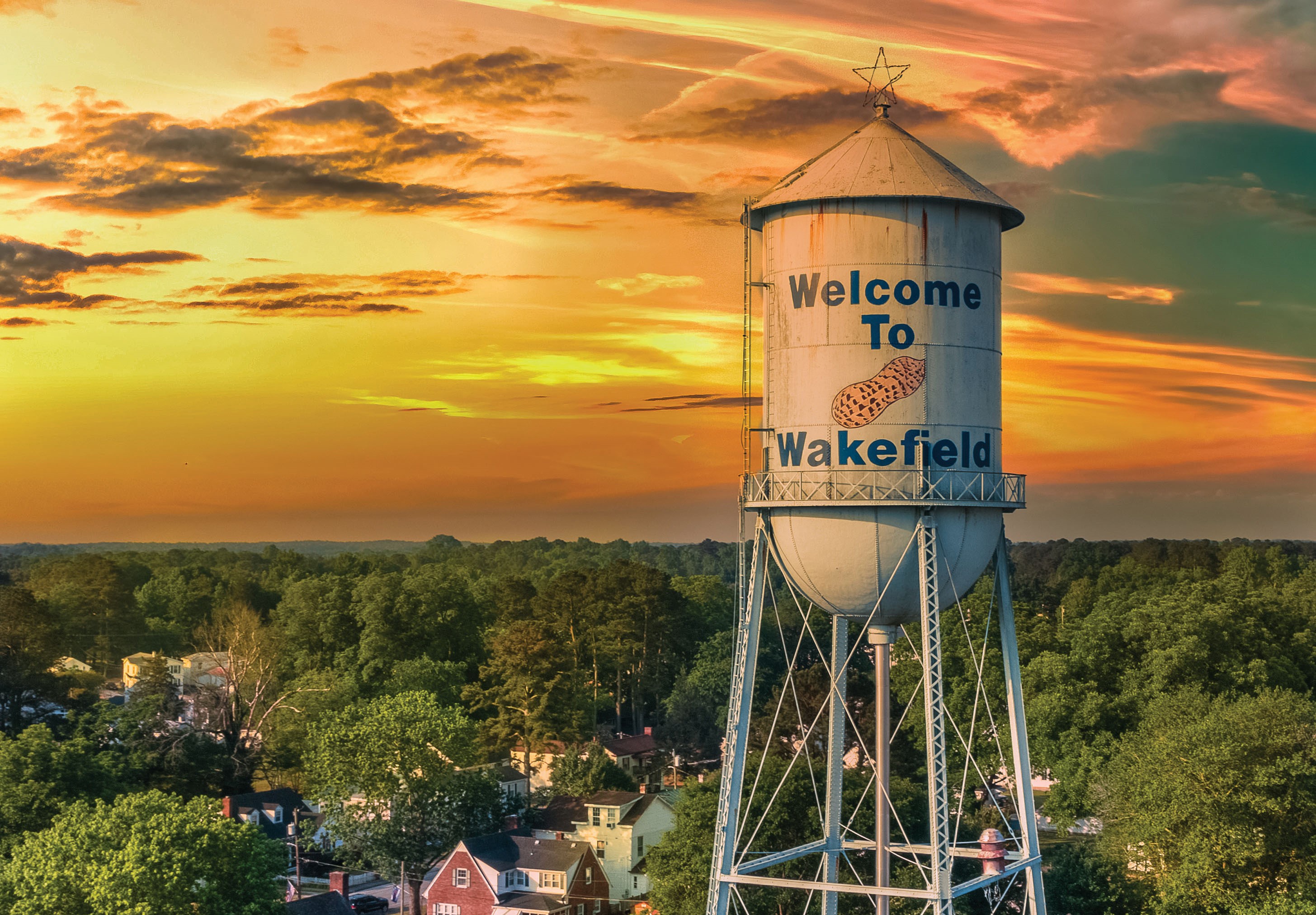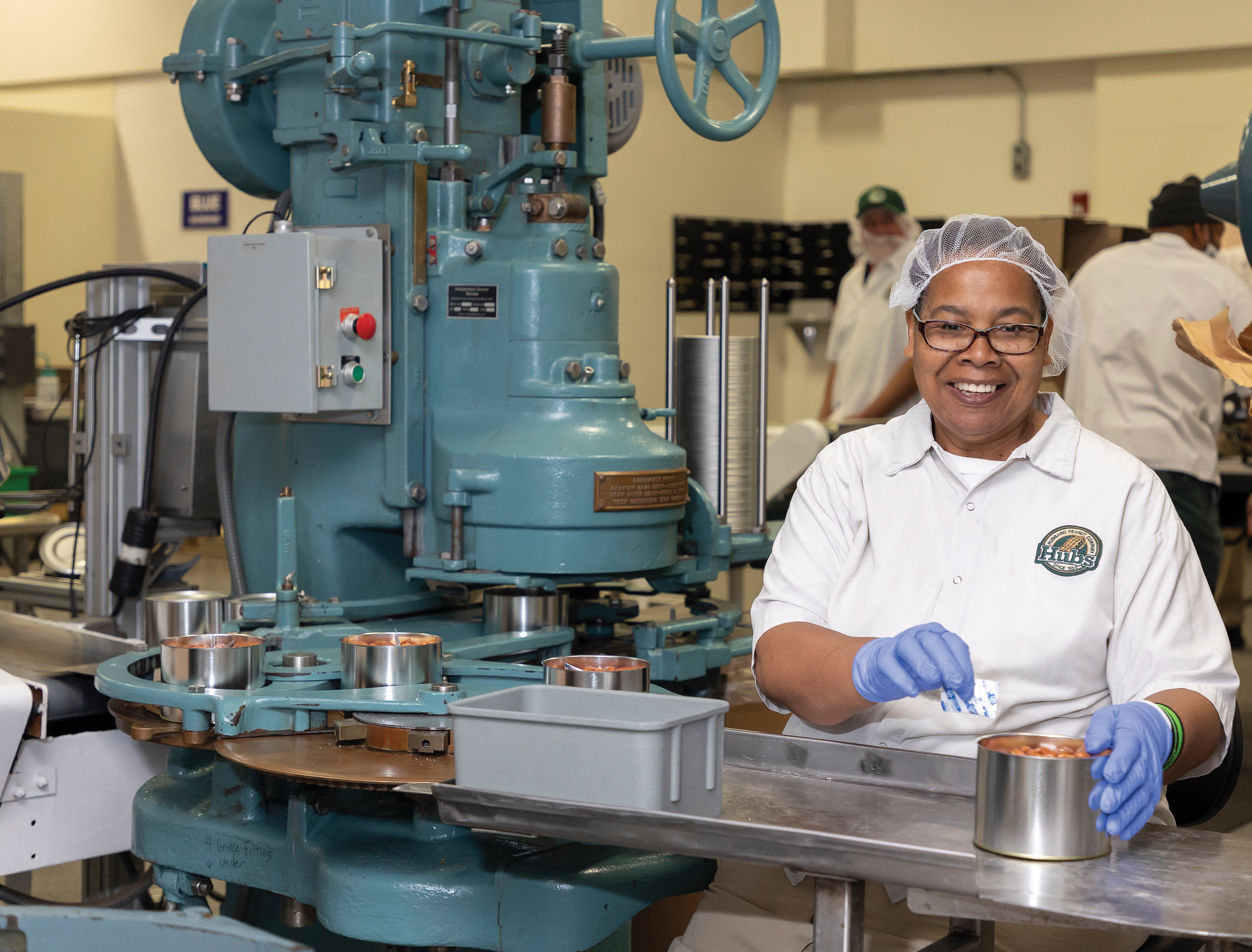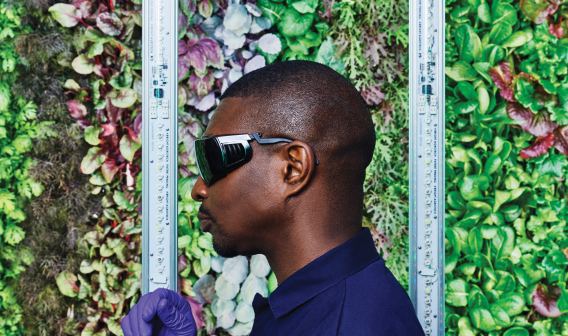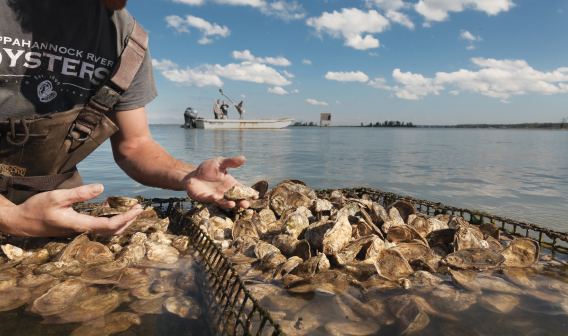Any discussion about Virginia peanuts needs to start with a clarification between Virginia peanuts and Virginia Peanuts. The lowercase former refers to peanuts grown in the Commonwealth; the capitalized latter is one of four peanut cultivars grown in the United States. If you’ve ever cracked a peanut out of a shell at a baseball game, that was a Virginia Peanut. Virginia Peanuts can be peanuts from Virginia, of course, but they’re also grown across the Southeast.
While Virginia Peanuts make up just 15% of total American peanut production, they’re known across the industry as the gold standard for size and quality. The vast majority of American-grown peanuts are the cultivar known as Runner Peanuts, often used in peanut butter and confections.
Virginia ranks eighth in the country for peanut production, with Commonwealth growers planting approximately 28,000 acres of peanuts in 2022, according to the Virginia Peanut Growers Association (VPGA). Nearly all of them are Virginia Peanuts, with some Runner Peanuts mixed in, and the vast majority are grown in a group of nine cities and counties in the southeastern part of the Commonwealth. Virginia is the northernmost peanut-growing state and among the most efficient, producing 4,500 pounds of nuts per acre in 2022, trailing only Arkansas, according to U.S. Department of Agriculture data.
A Reputation for Size, Flavor, and Crunch
Virginia Peanuts are often sold in premium packaging, at premium prices, in gift baskets and tins. Hubbard Peanut Company’s Hubs peanuts are one of the most prominent premium varieties, and founder Dot Hubbard pioneered the production of gourmet peanuts in the 1950s through a process that started with blanching the nuts in water before cooking.
It didn’t take long for business to take off. Word of the delicious nuts began to spread and a mail-order business took shape, with the nuts sold in gift shops, clubs, hotels, and restaurants across the country. Food writers as prominent as legendary critic Craig Claiborne of The New York Times took notice, and an industry was born.
In 2020, Hubbard expanded into a 58,000-sq.-ft. manufacturing, shipping, and retail space in the city of Franklin with about 70 permanent employees — not including the seasonal workers the company takes on to fulfill the Christmas rush, when its products are in high demand as gifts.
“Virginia is to peanuts what the Napa Valley is to wine,” Hubbard Co-Owner Marshall Rabil said. “Our nuts may not be as sexy as wine, but we’re part of every party.”
There From the Start
Native to South America, peanuts were grown only on a small scale until the mid-19th century. That’s when Dr. Matthew Harris cultivated the country’s first known commercial peanut crop in Sussex County, near the town of Waverly. The area’s warm climate and sandy, loamy soil proved to be an ideal environment for the plant, and Virginia quickly took the lead in American peanut production.
The Commonwealth’s enduring contributions to the industry didn’t end there. In 1902, Southampton County farmer Benjamin Hicks received a patent for the first gas-powered peanut picker, which revolutionized production by stemming and cleaning the nuts.
The biggest, most familiar name in American peanuts entered the Virginia peanut industry not long after that. In 1913, Planters Nut and Chocolate Company moved to the city of Suffolk, known as “The Peanut Capital of the World.” The company’s iconic Mr. Peanut mascot was created by a local child, Antonio Gentile, and a statue of the mascot has stood in downtown Suffolk since 1991.
Now owned by Hormel Foods, Planters employs approximately 400 people at its Suffolk facility. “When I interview people for jobs, they often tell me they want to work here because their grandfather or their grandmother worked here,” said Cara Dunfee, human relations manager at Hormel in Suffolk. The plant produces 126 nut-based products, ranging from trail mix to deluxe cashews.
